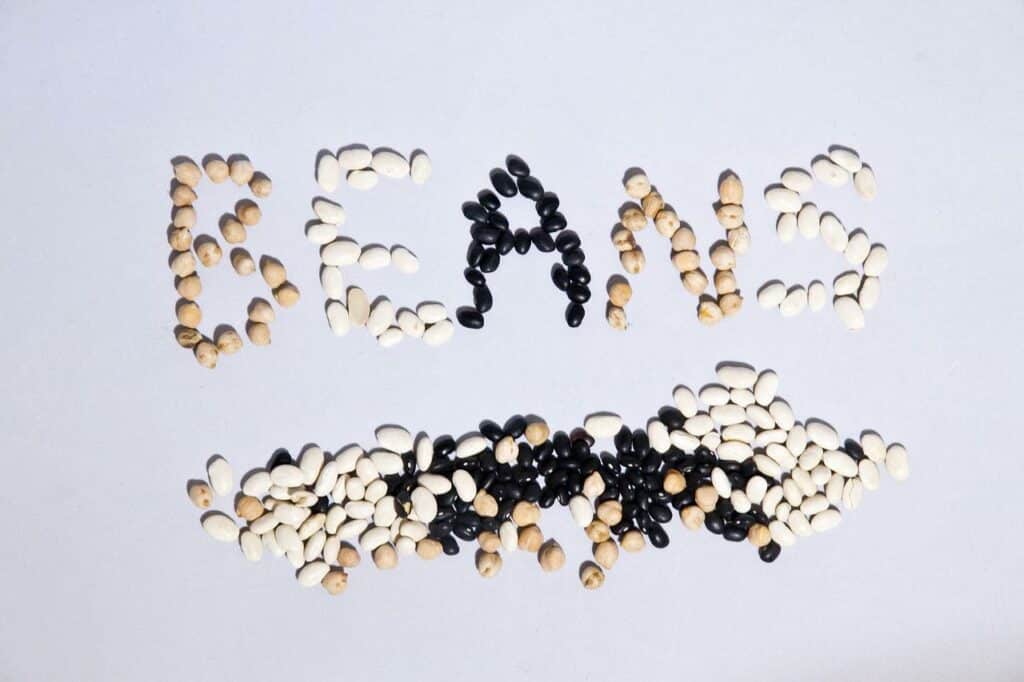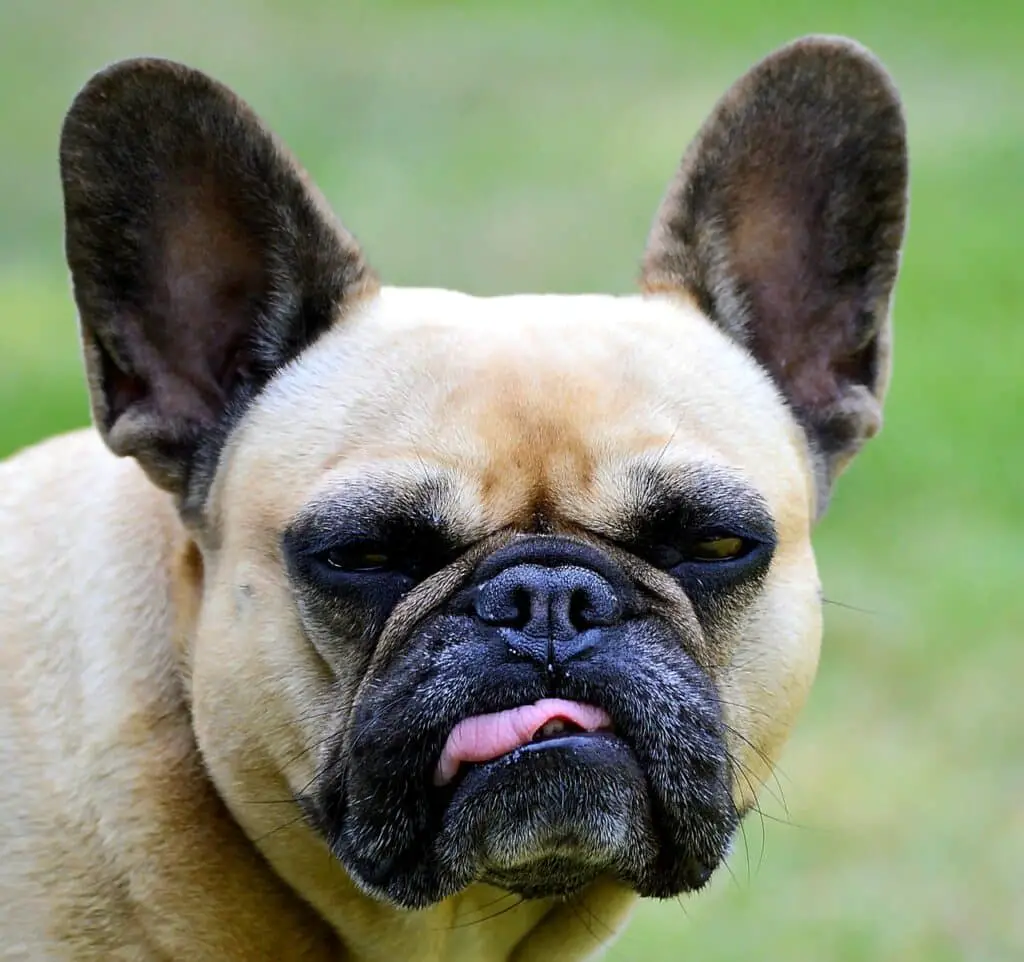When preparing a delicious dish of navy beans, you might ask yourself if you can give some to your dog.
The situation can pose a dilemma, but fret not because you are about to indulge in an eye opening article that will benefit both you and your dog.
So, can dogs eat navy beans?
Yes. Navy beans are full of fiber, essential vitamins, and proteins that are nutritious for your dog.
They will generally ensure the growth of strong muscles and a healthy body.
When you introduce navy beans into your dog’s diet, do it in moderation and watch out for any signs of an adverse reaction.
This article has pulled together important information on the health benefits, risks, and helpful tips that will guide you as you introduce navy beans into your dog’s meals.

Navy beans are a good source of vitamin C and K, folic acid, and minerals such as magnesium, iron, and potassium.
They also are high in fiber and proteins.
- Vitamin C is an antioxidant that can help reduce inflammation in your dog’s body. It also aids in the production of collagen which ensures joint and bone health, improves energy levels and will boost your dog’s immune system.
- Vitamin K promotes healthy blood clotting and ensures calcium is metabolized into your dog’s body.
- Folic acid is necessary for the production of red blood cells. It is also vital in producing nucleic cells like DNA. Folic acid will benefit its rapid cell growth if you own a pup.
- Magnesium will support your dog’s muscle health as it is involved in energy production at the cellular level. It is essential in the process of protein synthesis, blood sugar regulation, and control of your pet’s blood pressure.
- Potassium is an electrolyte that supports your furry friend’s bone, heart and nerve health. It also helps in the contraction and relaxation of muscles, affecting your dog’s muscle strength and growth.
- Iron is essential in forming red blood cells and hemoglobin in your dog’s body. When your pet has enough red blood cells, it will be able to produce energy at maximum levels.
The protein found in navy beans will aid in strengthening muscles and the creation of cells in your dog.
It will improve the dog’s nerve function and make it have healthier skin and coat.
Navy beans are also high in fiber which will aid in your dog’s digestion and improve its gut health.
Your pet’s good gut health will control its appetite, improve its skin and coat health, and lower blood pressure.

Gas
Navy beans contain sugar and fiber that your dog’s body can hardly digest.
The sugar and fiber will be passed to the large intestine, where they will mix with bacteria, producing gas.
Gas will make your pet fart a lot.
Diarrhea
Navy beans are high in fiber, which will cause increased movement of your pet’s digestive tract.
If your dog is sensitive to the additional fiber in its diet, this will lead to full-blown diarrhea as the stomach cannot handle the excess fiber.
Allergic Reaction
Your dog can have an allergic reaction to navy beans, so it will be wise to watch him closely if you are introducing it to his meal for the first time.
Common symptoms of allergic reaction to food include swelling of body parts, vomiting, diarrhea, itching, fever, and lethargy.
Toxic substances
Navy beans contain phytic acid, which prevents the absorption of essential minerals such as iron and magnesium when your dog is fed large amounts.
First, soak the navy beans in the refrigerator overnight.
Soaking will improve their texture and reduce your time to cook them.
After soaking, rinse them severally and boil them.
When cooking the navy beans, do not add salt or seasoning as this will help prevent bloating and gas.
You can then serve the beans to your dog as a treat or mix them with its other home-cooked well-balanced meals.
Remember to do this in moderation and occasionally, as too much of the navy beans won’t be good for the dog.
- Don’t feed your dog raw navy beans as it will be toxic to its system
- Feed your dog plain navy beans that don’t contain salt or seasoning
- Your dog should eat the navy beans in moderation to avoid bloating and gas.
- Navy beans should not be used as a well-balanced meal on their own but should be mixed alongside your dog’s other meals.
- Watch out for any allergic reaction or stomach upset in your dog when feeding it navy beans. If an issue arises, contact your vet immediately.
Beans to avoid feeding your dog
- Canned beans – These beans contain a lot of salt and artificial preservatives, which can harm your dog’s digestive system. It can lead to dehydration or kidney damage in your dog.
- Chili beans – These beans contain many spices that can wreak havoc on your dog’s digestive system.
- Baked beans – Baked beans contain a lot of sugar that can cause diabetes and weight gain in dogs. Garlic and onions are also ingredients in baked beans, and they are not healthy for dogs.
- Raw kidney beans – When your dog eats raw kidney beans, it will be toxic to its system leading to poisoning symptoms.
- Coffee beans – Contains caffeine which is harmful to dogs. Caffeine will raise your dog’s blood pressure, make him lose muscle control, and have seizures.
Frequently asked questions (FAQs)
Are green beans safe for dogs?
Yes, green beans are safe for dogs.
They are highly nutritious, and you can feed them to your dog as a snack, either raw or cooked.
Can I feed my dog refried beans?
No, you cannot feed your dog refried beans.
It contains seasonings like garlic and onions harmful to dogs, and has a high amount of sodium and preservatives.
Conclusion
It’s safe to feed your dog navy beans but in moderation.
Your canine friend will benefit from all the nutritious goodness in the beans.
Just watch out for any reactions and be ready to deal with a bit of gas here and there.
If you needed a sign to spruce up your dog’s diet with navy beans, this is it.
- What Dog Breeds Have Pink Skin? - March 24, 2023
- What Are the Most Inspiring Dog Breeding Quotes? - March 20, 2023
- Can Pheromone Spray Help Improve Dog Breeding Results? - March 19, 2023








